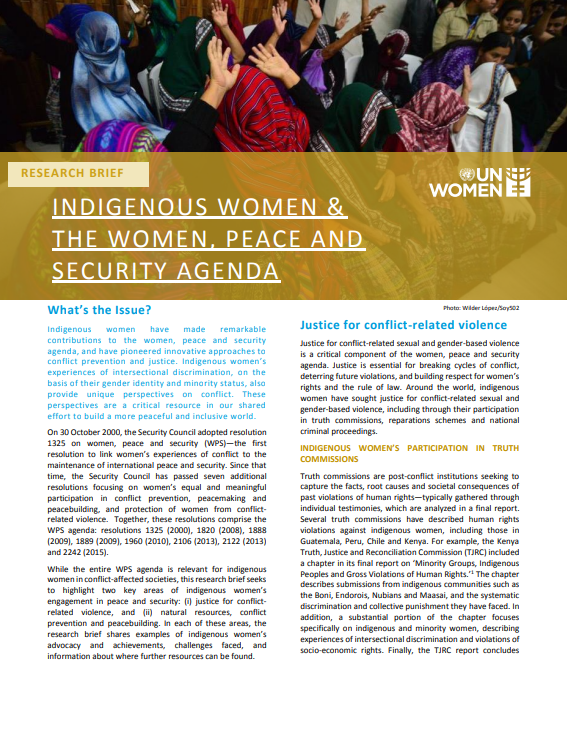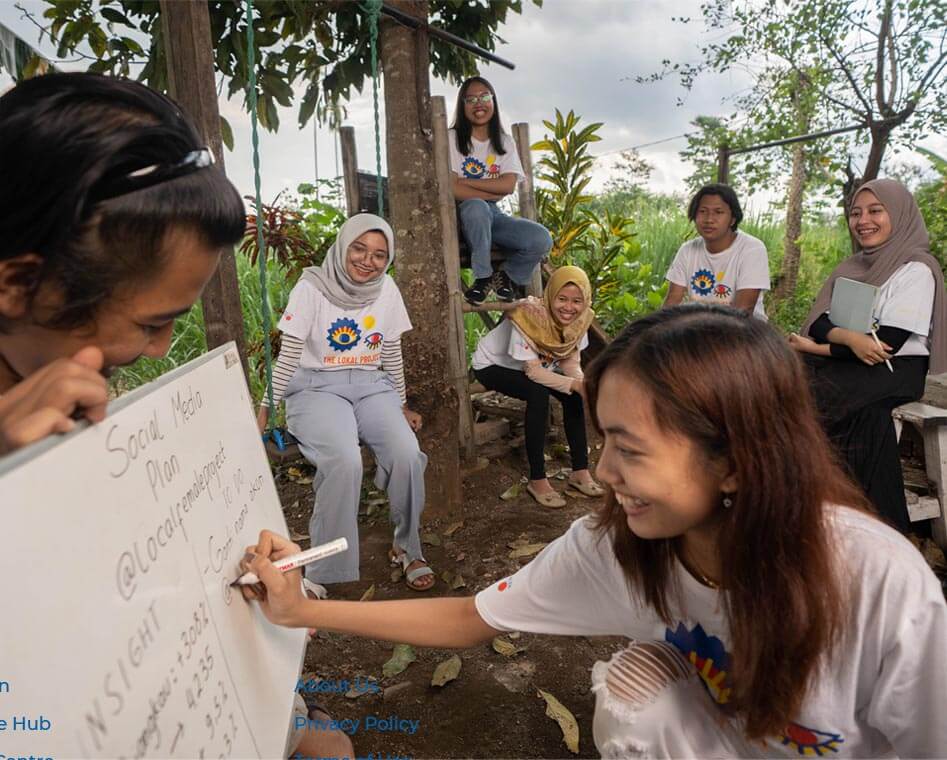
Indigenous Women and the Women, Peace and Security Agenda
Publication Date: October 29, 2016
Total Pages: 4
Organization: UN Women
Languages: English
Country/Region: Global
Topic Area: Gender Mainstreaming, Peace and security
Year: 2015
Resource Type: Research, Briefs
Abstract
Indigenous women have made remarkable contributions to the women, peace and security agenda, and have pioneered innovative approaches to conflict prevention and justice. Indigenous women’s experiences of intersectional discrimination, on the basis of their gender identity and minority status, also
provide unique perspectives on conflict. These perspectives are a critical resource in our shared effort to build a more peaceful and inclusive world.
On 30 October 2000, the Security Council adopted resolution 1325 on women, peace and security (WPS)—the first resolution to link women’s experiences of conflict to the maintenance of international peace and security. Since that time, the Security Council has passed seven additional resolutions focusing on women’s equal and meaningful participation in conflict prevention, peacemaking and peacebuilding, and protection of women from conflict-related violence. Together, these resolutions comprise the WPS agenda: resolutions 1325 (2000), 1820 (2008), 1888 (2009), 1889 (2009), 1960 (2010), 2106 (2013), 2122 (2013) and 2242 (2015).
While the entire WPS agenda is relevant for indigenous women in conflict-affected societies, this research brief seeks to highlight two key areas of indigenous women’s engagement in peace and security: (i) justice for conflict-related violence, and (ii) natural resources, conflict prevention and peacebuilding. In each of these areas, the research brief shares examples of indigenous women’s advocacy and achievements, challenges faced, and information about where further resources can be found.

